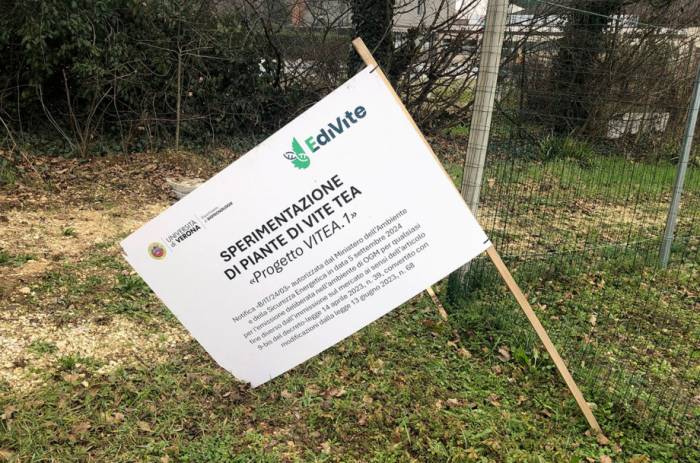Vandals Destroy Experimental Vines in Italy Amid GMO Confusion
Chardonnay vines using assisted evolution targeted in attack; researchers clarify they are not genetically modified organisms. Investigation ongoing.
2025-02-27

In northern Italy, vandals have destroyed experimental Chardonnay vines developed through 'assisted evolution' techniques. These vines, studied by the University of Verona, were uprooted in San Floriano di Valpolicella. The incident occurred during the night of February 12 and 13. The vandals targeted 10 small plants, including five experimental and five control vines. The motive remains unclear, but there is speculation that the attack might have been aimed at genetically modified organisms (GMOs). A sign at the site, authorized by the Minister of Environment and Energy Security on September 5, 2024, mentions GMOs, which could have led to confusion.
Researchers clarified that the vines are not GMOs but represent 'assisted evolution' technology (AET). This method aims to create disease-resistant vines, reducing the need for pesticides. Professor Mario Pezzotti, from the University of Verona's Department of Biotechnology, explained that AET involves targeted mutations, similar to natural processes. The five Chardonnay plants were edited to resist downy mildew. Pezzotti expressed concern over the destruction, noting that some people oppose such innovations without understanding them.
The vineyard's signage, required by Italian law, includes a reference to GMOs, which Pezzotti acknowledged as misleading but unchangeable. The experiment was approved by the Italian Ministry of Agriculture and funded publicly. An investigation is underway to find those responsible for the vandalism.
Trade organizations have condemned the attack. Eugenio Tassinari, president of the Italian seed association Assosementi, described it as an assault on the work of researchers and the Italian agri-food sector. Garlich von Essen, secretary general of Euroseeds, emphasized that science-based innovation should not be hindered by fear or ideology. The incident highlights the challenges faced by researchers in advancing agricultural technology amidst public misunderstanding and opposition.
Founded in 2007, Vinetur® is a registered trademark of VGSC S.L. with a long history in the wine industry.
VGSC, S.L. with VAT number B70255591 is a spanish company legally registered in the Commercial Register of the city of Santiago de Compostela, with registration number: Bulletin 181, Reference 356049 in Volume 13, Page 107, Section 6, Sheet 45028, Entry 2.
Email: [email protected]
Headquarters and offices located in Vilagarcia de Arousa, Spain.